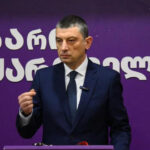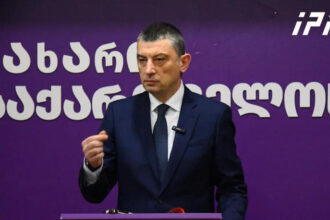On September 22-26, the Georgian delegation led by Prime Minister Irakli Kobakhidze attended the 79th session of the United Nations General Assembly (UNGA). This annual event has traditionally been an important platform for Georgian delegations to advocate for non-recognition of the Russian occupation among world leaders. However, this year’s UNGA was marked by a lack of engagement with Western leaders, and it may be remembered for its silence on the issue of Russian occupation.
During the UNGA session, PM Kobakhidze and FM Darchiashvili participated in the Summit of the Future, a high-level event focused on global governance and sustainable development. In his speech, PM Kobakhidze expressed Georgia’s support for the adoption of the Pact of the Future and its documents, and its commitment to incorporating key elements of the Pact into national policies.
The Georgian delegation’s participation in the UNGA session took place against the backdrop of deteriorating relations between Georgia and the West, particularly the US, due to Georgia’s recent anti-democratic actions, anti-Western rhetoric, and backsliding on the path to EU integration.
Compared to last year, PM Kobakhidze’s high-level meetings were noticeably limited, and FM Darchiashvili did not meet with any ministers from EU member states. PM Kobakhidze did meet with UN Secretary-General António Guterres and Secretary-General of the Council of Europe Alain Berset on September 24. They discussed cooperation on EU integration and the situation in Georgia’s occupied territories.
Since then, no further meetings of PM Kobakhidze have been reported. Last year, then-PM Irakli Garibashvili held a total of ten meetings during the UNGA session, including with US National Security Advisor Jake Sullivan and European Council President Charles Michel. FM Darchiashvili also had fewer meetings this year, with a total of ten compared to 19 last year.
Overall, the Georgian delegation’s participation in the UNGA session was overshadowed by the country’s strained relations with the West and a lack of engagement with key leaders. This may have significant implications for Georgia’s future relations with the international community.
Read More @ civil.ge













